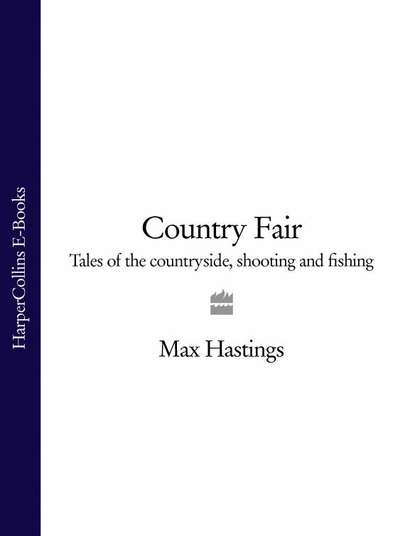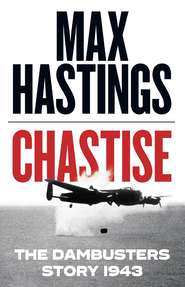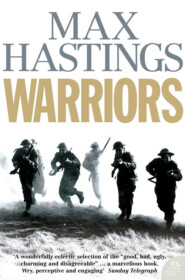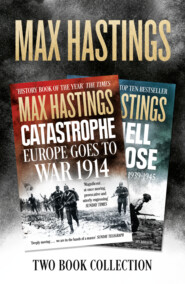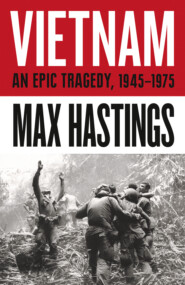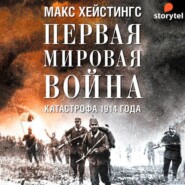По всем вопросам обращайтесь на: info@litportal.ru
(©) 2003-2025.
✖
Country Fair
Автор
Год написания книги
2019
Настройки чтения
Размер шрифта
Высота строк
Поля
The pheasants that clatter aloft unscathed at the end of an October partridge drive, taking flying lessons for November, offer promise of good things to come. Yet pheasant-shooting has suffered more than any other field sport from upheavals in the climate. At midwinter we want to shoot on cold, crisp days with a hard frost and maybe even a little snow. That is what our forefathers did. They wrote reams of doggerel extolling the beauties of Christmas cock pheasants paddling about in the drifts.
Today, instead, we find ourselves turning out again and again on mild, soggy days when nobody, including the birds, really wants to do it. The abolition of our traditional winter, especially in the south of England, is a blow to field sports. There seems little chance that God will change his mind and restore the old weather pattern – indeed, if anything, matters will become more difficult as the effects of global warming become ever more apparent. The best we can hope for, these days, is a few sharp, chilly days in January, towards the back end. I don’t know about you, but I have had enough by then. I feel ready to stop, flee from England for a while, then turn to the garden again. I never sob for anything lost on the first of February. I am merely boundlessly grateful for the fun I have had, and happy to wait for it all to start again with the trout in late spring. ‘To every thing there is a season,’ wrote the sage in Ecclesiastes, ‘and a time to every purpose under the heaven.’ The old boy never said a truer word.
3 The River Keeper (#ulink_8fc62ea7-9158-5ebf-b99b-6ac84121700e)
THE GREAT Richard Walker once suggested dismissively that ‘The most difficult thing about dry fly-fishing is to find somewhere to practise it.’ He seems right up to a point. Now that so few of even the great south of England chalk streams offer truly wild fish, the art of the dry fly is diminished from the days Skues and Dunne knew. Yet for many of us, there remains a magic about fishing a river which is absent from still waters, save perhaps those of Scotland and Ireland. It seems worth every penny of the alarming cheques one must write, to savour the joy of casting beneath willows and among the rushes for a chalk stream trout. I would pay at least half the money each year merely for the privilege of walking the banks without a rod, watching the fish and the wildlife in summer. Even many professionals, I think, are drawn to a career in a fishery for the same reason.
The man who influences my own happiness on dry fly water more than any other lives in a modest cottage maybe half a mile from my own home, and a long cast from the river where he plies his trade – no, surely we should call it a profession. My daughter remarked the other day that she reckons only one in ten of the people she knows have jobs which they enjoy. This seems a fair guess. It does not represent mere sentiment to suggest that the career contentment quotient is higher in the country than in town. Those fortunate enough to forge a lifestyle working with nature are more likely to achieve happiness than people who merely massage money through their working days.
Our local river keeper, Stephen Jones on the Kennet at Chilton Foliat, seems one of the most fulfilled men I have ever met. Everybody who meets Stephen goes away muttering that he ought to be chairman of Microsoft or suchlike. He is forty-six, bright, decisive and fluent. But no, all his life he has wanted only to be a river keeper. This is fortunate for those of us who fish with him, because he is very good at it. And maybe it is also lucky for him. Here is a man who knows exactly what he wants, and knows that he has got it. He grew up in Southampton, where his father worked in a bank. It remains a mystery whence sprang his enthusiasm for running streams. The family used to visit the New Forest a lot, and as a teenager Stephen did some pretty unsuccessful fishing on the public water of the Itchen estuary. But somehow the idea of working on a river got into his head, and stayed there. His father always said: ‘Make sure you get a job you enjoy.’
A family farming friend mentioned that Sparsholt College was starting a fishery management course. Stephen enrolled for it. Meanwhile, at sixteen, when he left school – ‘They didn’t think I was the sharpest knife in the box’ – he spent a year’s apprenticeship on the Test at Broadlands. There, he says wryly, ‘Working among men I did a lot of growing up very quickly.’ After college he spent three years at Packington Fishery in Warwickshire, which he enjoyed but found very commercial: ‘Rods really wanted their pound of flesh.’ Then as now, he himself fished very little. Like gamekeepers who scarcely trouble to shoot, Stephen is a typical river keeper in that he gains his pleasure from living with the water, and from watching others cast. He is a good entomologist, but learned about insects from watching fly on the water, rather than from books. He knows his birds, is less confident with plants, ‘But I’m still learning.’
He came to the Kennet in 1982, at a time when the Chilton Fishery was in poor health, after years in thrall to a Thames Conservancy policy designed to speed flow and improve field drainage for the only rural activity that seemed to matter in those days – growing corn. The estate syndicate could not sell all its rods, and was losing money. Stephen worked at increasing weed growth, putting bends back into the stream. He started rearing his own trout for stocking at the end of the season, ‘Which is a big plus at the beginning of the next one, because you don’t have a river full of gullible fish.’
Today, there is a long waiting list for rods, and Chilton is famously one of the prettiest stretches on the river. Stephen loves the variety of the fishing: ‘Because the main river and the carriers are so different, there’s always somewhere to get out of the wind, always somewhere to find a bit of shade, always somewhere you can get away on your own.’ His own summer day starts at seven when he feeds the fish, walks the dogs and checks his fenn traps – he catches half a dozen mink a year. There are new rods to be shown around, and duffers like me who always need advice on flies. Towards evening there are also occasional poachers, ‘white van men’, usually in their early twenties, never alone, often plying a handline which they can drop in the water if they are spotted, to remove the evidence. They are the reasons for Tiger and Lizzie, Stephen’s German shepherds, without which experience has warned him not to try consequences with intruders. He seldom bothers to call the police, because they come so slowly.
He says that his real pleasure in the job, beyond the beauty of the place, is meeting people. ‘There used to be three old boys who came every Tuesday – a High Court judge, a former Hong Kong governor who’d been in Changi Jail, and a survivor of the sinking of the Repulse. I’d see them every lunchtime, and we’d sit down for a chat. They weren’t boasting at all, but when you listened to those men and thought about what they’d seen and done…’
In summer, Stephen is a keen bowler for a local village cricket team. When there is no fishing in the winter, he loads and beats a bit. Out of season, he and his wife Fiona also travel, usually somewhere exotic. Two years ago it was Namibia, last time California. Fiona is Australian, from a country district a few hours outside Melbourne. They have been married for ten years, and she is a successful executive with Vodafone. Stephen is full of admiration for her swift rise: ‘She’s clever and she’s Australian, which means she’ll always say, “Let’s give it a go!” We don’t do that here, do we?’
I asked Stephen about the common mistakes he sees fishermen make. ‘They don’t look enough. They’ll cast to a fish without noticing there’s another one in between. Some people think that to be fishing, you’ve always got to be plying a rod. Time spent looking before you do anything is the trick. It’s always a mistake to move too quickly, to rush around the river.’ Does he never get restless? ‘Never yet. I’ve not seen anywhere the grass is greener. Maybe towards the end of a season I might start to get a bit weary, then I see a rod coming down here for the first time, really excited about fishing. There are two Americans who cross the Atlantic every year, just to fish here. I think to myself: they’re willing to come all that way, to be on this water. And I feel proud.’
His big beef, inevitably, is water abstraction. He fumes that the level of water which can be stolen upriver is assessed on the basis of the last calendar year, which means that 2003, for instance, was identified as wet because of what happened in January and February, despite the endless dry months that followed. In 2004, by early spring the river was at a June level, and matters have been worse in 2005. Yet Swindon was permitted to divert even more water than it was taking already – and none of this returned to the Kennet. Here is a sad and familiar story throughout the south of England, a grave threat to the future of our chalk streams. Whitehall planners continue to approve massive housing developments, heedless of how much water our modest river systems can spare for diversion to ever-growing conurbations. If the countryside of southern England loses its rivers – and several are desperately depleted – then a vital artery of rural life will be severed.
I suggested to Stephen that almost all the mistakes people make in life are things they miss out on, not things they do. He nodded. ‘There was this chap who had a rod here – very successful businessman. In five years, he never got to the river once. He was just too busy. Now’s he’s dead. It seems such a waste, not to have done something you really like doing.’ For himself, he says unhesitatingly that he has the life of his choice. He revels in feeling master of his own destiny: ‘This is good. The world comes to you, rather than you having to go to it.’ And those of us who fish with Stephen feel lucky that we should have the privilege of his company and his wisdom for many seasons yet.
4 Sunshine and Showers (#ulink_d3667665-6a81-576f-96f8-526ef685af29)
EVERY REAL HUNTER, shooter and fisher accepts the weather as part of the game of chance that makes up sport. If we get soaked walking hedges in pursuit of a pheasant, the experience doubles the pleasure of lying in a bath afterwards with a whisky and a book. If our rivers and lakes were forever in perfect order, where would be the thrill and surprise about hooking a trout or salmon? G.E.M. Skues wrote a salutary short story about a man who died and found himself on a river where the fish were rising continuously. He thought he was in heaven, netting trout after perfect trout, until he grew to understand that this was an exquisite form of torture devised for the other place. Most of us practise field sports because we love to commune with wild things in wild places. The whimsy of the British weather is inseparable from the experience. Shooting high pheasants in a gale is difficult, because the target is usually travelling in two directions at once, but the thrill is doubled if you hit one of these superbirds.
The elements influence fishing even more decisively. William Blake observed wryly: ‘The weather for catching fish is that weather, and no other, in which fish are caught.’ One July Monday, I found myself plying a small double across a Scottish salmon river. The gillie frowned gloomily and observed: ‘It’s a fortnight since we had rain. We need the water up a couple of inches.’ On Tuesday a fierce upstream wind made casting difficult even for experts. The gillie shook his head: ‘The two best fishers I know go to sleep on the bank when there’s an upstream wind.’ On Wednesday, heavy thunderstorms stirred the current into cold chocolate soup: ‘It should be great tomorrow if the rain stops and the river starts falling,’ said the gillie in real excitement. The river rose a trifle on Thursday. On Friday, at last it was steady, though highly coloured. We caught some fish on big, bright flies, and thought eagerly of Saturday, when we would have the best beat on the river. But next morning there was more rain and more colour. We landed the odd salmon, but never reaped the sort of grand harvest that on Monday we had been sure must come.
Now, do not interpret this as a fisherman’s whinge. We enjoyed a wonderful week on wonderful water and caught a respectable number of fish. I am simply making the point that ours was the sort of climatic experience every angler knows. Only once or twice in a lifetime do most of us get the chance to fish through several successive days of weather when fish and gauge marry, to yield a bonanza.
Shooting is a bit more reliable, but not much. About one day in three, conditions are the way we want them. The wind is blowing in the right direction, rain is holding off, the sun is not too bright. By contrast, there are those mornings in August when the sun is blazing magnificently, making it a pleasure to walk the hill, but young grouse receive no help from a breeze to lift them forward. After being flushed for the first time, they drop exhausted into the heather well in front of the butts, and refuse to get up again. September and October grouse are stronger and much more challenging, but by then the threat of mist or rain is never far distant. Few sporting experiences match the misery of receiving a priceless invitation to shoot grouse, then spending two days at the foot of the hill waiting for a ‘clag’ to lift.
Come pheasant-time, most of us reckon that a perfect December or January outing means an overcast day with some wind, when in Patrick Chalmers’ phrase ‘the snow-powdered stubble rings hard to the tread’. Yet a white landscape looks more romantic to guns than to keeper and beaters. It is a tough challenge, to persuade birds to leave patches of snow-covered brambles, to keep a beating line tramping a wood in which white lumps of wetness are flopping off the branches onto every beater’s neck. On such days, the sight of dead pheasants precipitates in some of us a spasm of squeamishness. There is a pathos about a bird lying limp amid a cluster of feathers and pink spots of blood on the snow, which seldom troubles the senses in other conditions.
Yet in modern British winters, rather than snow we are likely to get mild, muddy, still, sunny days on which birds drift low over the guns with wings set, or others when torrential rain causes the water to run in streams down the barrel rib. Few of us can fib convincingly enough to make ourselves believe that we like competing in such conditions, when the stock of the gun is slipping in the hand and we are struggling to see coveys or flushes through the squalls. Gene Kelly may have enjoyed singing in the rain, but how many of us, deep down, like shooting in it? On a Saturday morning not long back, the phone rang in Hastings Towers at 8 a.m. Glancing out of the window at a torrential downpour, with more of the same promised all day, I experienced a surge of hope that my pheasant host was ringing to cancel. Not a chance, of course. Already some guns had been in their cars for half an hour, while beaters and pickers-up were congregating from all over the region. Shooting dates are fixed six or nine months before they take place. Not even a death in the family is likely to change them.
About here, hardy veterans of the Norfolk coast, the Northumbrian hills, the Cornish valleys, start muttering to each other: ‘Not much of a sportsman this chap Hastings, is he? Doesn’t like getting his feet wet!’ Yet my purpose in these jottings is sometimes to suggest sentiments which lots of people secretly share, but don’t like to admit. Of course we are all out there doing our thing, even when cats and dogs are plummeting down. But most of us, in such circumstances, wish we were at home in front of the fire. The only case for shooting in the rain is that, like looking at other people’s holiday snaps, it is so wonderful when it is over.
Modern clothing is much more effective than the kit of fifty years ago. Encased in thermals and Gore-Tex, it should be possible to avoid ever being cold or wet again. That is, if one stays perfectly still. The problem about shooting is that it requires moving our arms and legs, sometimes quite energetically. Every extra sweater makes it marginally harder to swing a gun. On a really rough day, those of us who affect enough clothing to impress a moon-walker find it difficult to raise a flask to our lips, never mind take aim at a rocketing pheasant. A majority of shooters perform best when wearing least – no, I don’t mean quite that, but shirtsleeves anyway. We become slower and clumsier with each layer of protection.
Unless it is very cold, I never wear gloves in the rain, because they become such wretched things when waterlogged. That leaves one stumping between drives clutching a dog skewer caked in mud, cartridge bag and shooting stick ditto, wiping a hand disconsolately on the grass before putting sticky fingers on the gun. My smart friends have nowadays abandoned spectacles in favour of contact lenses, especially for sport. They say that these make all the difference in the world when the heavens open, or one is trying to woo another wife. Yet goggles have been part of me for so long now that I can’t face changing.
Fine, misty rain is worst for sporting spectacle-wearers. For the first half-hour, one dries one’s glasses occasionally on a handkerchief. Thereafter, the hanky becomes so sodden that it is past doing the business. I simply peer out upon a universe shrouded in wet. When a blurred flying object appears, I point the gun roughly in its direction and fire, confident that even if it is an owl or a sparrowhawk, there is not the smallest chance it will suffer any damage. I often wonder how wildfowlers manage to kill anything, when they do not bother to venture out of doors unless there is a Force Eight gale and raindrops are battering their camouflage suits with the impact of tin tacks. I have always admired wildfowlers, while being a little frightened of them, in the way that soldiers fear officers who want to win the VC. I cherish an uneasy apprehension that a friendly wildfowler will one day cajole me into sharing his experiences. I prefer to read books about them, to savour the full pleasure of not being on the saltings myself. In 1916, the Germans placed an advertisement in the US press, designed to deter interventionists: ‘Americans! If you are thinking of participating in the European war and wish to sample the sensations of combat, you may do so without leaving home. Dig a six-foot hole in your garden. Half-fill it with water. Then live in it for a few weeks in mid-winter on a diet of cold food and muddy coffee, paying a lunatic to fire machine-guns at you.’ If one leaves out the machine-guns, that seems a pretty vivid description of wildfowling.
I have never asked a pheasant how it feels about being asked to put on a sporting performance in a deluge, but its demeanour usually leaves one in little doubt. Pheasants that have been soaked overnight scamper about in front of the beaters, looking as if they had just emerged from a swimming pool. If eventually shooed into flight, the sensible ones beat their wings half-heartedly a few times, then settle back where they came from, pleading exemption under Conditions of Labour legislation. True, I attended a heavy-rain high-bird shoot in Wiltshire last season where the pheasants performed more convincingly than the guns, but since the poor brutes were being driven off precipices, they were not given much choice. One needs only to look at a wet dead pheasant on the game cart to know that it was not feeling its best even before encountering a pattern of no. 6 shot. The truth is that we should not shoot in heavy rain, because it is not fair on the birds. It is a bit like asking a horse to race with a couple of stone overweight, or a sprinter to perform in ski boots. Some of you will think that I am being a bit – well, wet about all this. Maybe so, but the truth is that when we launch a day’s shooting in heavy rain, we are suiting our own administrative convenience or financial imperative, rather than measuring the quality of sport.
Yet after a morning of downpours on a grouse moor, all debts of discomfort are repaid if the showers clear by afternoon, the sun bursts through, the dogs shake themselves dry, the heather steams. Even the midge hatch seems bearable if God lets up on us before the last drive. Perversely, it is often the days when one has battled with the elements, casting into a cutting wind or striving to push the barrels after birds streaking across the line, that stick fondly in the memory. Sport is least interesting when it is easy. The quarry we pursue must live through all the days and seasons. We do not seek to share the full rigour of its experience, but we can at least go to meet it halfway. Even when I am moaning, I try to remind myself that a fair-weather sportsman is no sportsman at all.
5 The Young Entry (#ulink_533e99d3-72aa-551c-9795-420ea851647a)
I HAVE BEEN been a young gun now for, oh, forty-something years. I have started to think of myself as quite an experienced young gun. I seem to get more shooting days than I managed a few seasons ago, in the sixties. What was that you said? Surely not. A Scottish pub landlord asked only the other evening, ‘What can I get for you, young man?’ I felt quite bucked. It is unkind to suggest that he was being satirical. One day last summer, however, I found myself in a line with half a dozen shots who were indisputably younger young guns than me. They were accompanied by wives who clapped their hands prettily as they fired, and babies in pushchairs. One of the team said: ‘I couldn’t get to sleep last night, I was so excited about shooting grouse today.’ His words pricked my heart, touching memories two or three decades old. I remembered exactly that sense of excitement and apprehension. Ruefully, I recognised that even if I am not yet an old gun, in the eyes of that man’s generation I am a Boer War veteran – well, at least a Falklands one, which is almost the same thing.
My father imbued me with a passionate enthusiasm for shooting and fishing, without providing many opportunities, because he lacked the means. In my teens I walked-up pheasants or grouse maybe half a dozen times a year, and shot pigeon a few more. At the age of twenty-four I took half a gun in a pheasant shoot, and began to rent a dogging grouse moor in Sutherland. Nowadays, if my children started doing those things on incomes as slender as mine was, I would have them put under medical supervision. Friends and even relations assumed that if I owned a sports car and took a Scottish shooting lodge, I must be richer than they thought. In truth, sporting folies de grandeur brought me within a whisker of bankruptcy. Yet I can never forget the euphoria of those wonderful early sporting days, when every grouse that rose from the heather seemed a miracle of beauty, and each shot at a driven pheasant was an adventure. Young sportsmen, like young everything elses, experience the summits of joy and the depths of despair, an emotional topography which the river of time flattens by middle age.
It is a relief to have left behind the financial horrors of those early years, which dominated my overdraft. When we quit Sutherland to drive south after summer idylls in the seventies, around Dingwall I began to think about the bank manager. By the time we passed Carlisle, I was wondering what I could sell to pay the bills. You may say that a real sportsman doesn’t think too much about what things cost. I don’t agree. Many of us, especially the young, become upset if we have a seriously bad draw on a paying day we know we cannot really afford. And in those early years I became almost hysterical about wasted opportunities when I shot really badly, as I usually did.
One of the greatest pleasures of middle-aged shooting is that one is more relaxed. If the weather is bloody on Monday, one knows that there will probably be sunshine on Saturday. Belatedly, I am even learning not to mind too much if the birds flock to the next peg, and I miss the ones over my own head. Does this represent maturity, or a loss of that ‘edge’ one needs to shoot well? You tell me.
An aspect of getting older is that my fear of doing something dangerous has increased, rather than diminished. Many of us, once in a season or two, take a shot that brings on a sudden cold chill as the report dies away. Perhaps it is because one has fired low at a partridge with a hedge behind it, perhaps when one suddenly feels uncertain where the nearest stop is. One afternoon last season, I was bawled out by a head keeper’s wife for taking an overhead grouse after the first horn had gone. I thought the shot was perfectly safe. She did not. In these matters the home team is always right. I apologised, and meant it. Whereas our great-grandparents made jokes about peppering beaters or shooting a loader, nowadays we all know that no accident with a gun is remotely funny. The deep public suspicion of firearms and field sports, which is a fact of modern life, makes us morbidly sensitive about doing anything that might increase it.
In my twenties I filled our home with sporting prints and later watercolours and paintings, as had my father. I recently heard Malcolm Innes, a veteran of the trade, say that sales of sporting art – at the popular end of the market anyway – are languishing. Malcolm suggests that this is because the young are simply not buying pictures of the kind we all loved: Thorburn and J.C. Harrison prints, Balfour-Browne stalking sketches. He suspects – and my instinct is that he is right – that while the new generation likes field sports well enough, few twenty-somethings embrace them as consuming passions. Perhaps this is partly because shooting is now almost prohibitively expensive and hard to come by for their generation. When I was twenty-two, the owners of a girls’ school near our home in Hampshire let me roam its woods, potting the odd pheasant. I can’t imagine anyone these days giving a young man with a gun that sort of licence. In the south of England rough shooting has become almost unobtainable. Yet we should recognise that driven shooting is a bastard extravagance for relatively rich men. Walking-up game with dog and gun is, and always should be, the core of sport.
But then I think again of that eager thirty-something-year-old I met last summer, who couldn’t sleep for his excitement at the prospect of the morrow on the moor. The passion persists among some of the young. Our job – the responsibility of the not-so-young – is to see that the next generation is given the opportunities to keep alive the sporting heritage. George Eliot wrote: ‘If youth is the season of hope, it is often so only in the sense that our elders are hopeful about us.’ Yet the young must be given the chance to experience the magic and catch the bug, to become steeped in the enthusiasm we have known.
Children’s shoots may sometimes be alarming experiences, but they are bedrock for the future. In our family we continue to give an annual outing that name, though all those involved are now in their twenties. My son and daughter ask three or four friends apiece to a day which I take for them on a nearby estate. Roughly the same team has turned up every year for the past six or seven. Port – which none of my own age-group seems to drink at all – is consumed in prodigious quantities at dinner the night before the action. Indeed, the general alcohol intake would have commanded respect at a Roman bacchanalia, though I don’t mind when the young are not driving anywhere. Some subsequently sleep in beds, others doss wherever they can find a corner of the house – we never ask.
Marshalling the guns next morning, one might suppose that they had regressed to a common age of about six. Waking and feeding them, ensuring that they are properly equipped, demands a large nursery staff, rather than just me and a frying pan. Each must be quizzed before setting out, to ensure that he or she has Wellingtons, gloves, jackets, firearms. I warned two of the party to make sure they put plenty of 20-bore cartridges in the cars. We arrived at the shooting lodge to find that they had brought only a case of 12s. How do they get to the cinema on the right day, never mind earn livings?
I carry a radio rather than a gun at these affairs, taking my orders from the keeper, who fortunately knows us well and possesses a keen sense of humour. I lay on the safety warnings with special energy. A few years ago, one twenty-year-old gun – from a shooting family – terrified me. I saw him twice try to shoot a pheasant almost head-high in front before I reached his peg and lacerated him. He was not on the list this year, thank goodness. The first two drives were memorable for producing the worst exhibition of shooting I can remember since the guns were about twelve. On a sharp, cold day with a touch of wind, the partridges flew like smoke. A barrage of fire poured skywards. My dog sprang expectantly at each detonation, hoping for something to retrieve. Not a chance, ducky.
I stood behind my daughter. At the age of twenty-eight, she still cherishes a delusion that she can pick up a gun once a year, having spurned all offers of an outing at the shooting school, and expect birds to fall down. ‘You’re six feet behind every bloody one!’ I exclaimed, relishing the knowledge that nobody present had seen me shoot lately. ‘Chill out, Daddy,’ said the daughter scathingly. She was raising the gun so hesitantly that the bird was twenty yards behind the peg before she pressed a trigger. Then she stood contemplating its undamaged passage into the distance, expecting it to expire as an act of will, instead of reloading for the next flush. The boys, if one can still call them that, were throwing prodigious quantities of lead into the sky for not much better results.
After the second drive, the keeper announced with relish over the radio that 330 shots had been fired. Thirty-seven birds had been picked up. I pressed the handset and demanded, in front of the team, whether he had seen a worse showing this season. ‘No,’ he said decisively, amid a howl of mirth from the guns. In fairness, most of the boys get no more shooting than I did at their age, which was not a lot. But some do have practice. One of their daddies, indeed, features on best-shots-in-Britain lists. I said that they seemed to be hitting less than last year. ‘It was the port,’ they replied, attacking mid-morning sloe gin, soup and sausages as if they had not seen a square meal in a month.
The great thing about being boss of a day like this is that one can profess omniscience, in the absence of sceptics who know my own form. ‘By now,’ I told them confidently after the third drive, ‘a team of Chelsea Pensioners armed with walking sticks could have two hundred in the bag.’ One of our beaters had a seizure at the spectacle of a female gun, an old friend of my daughter and not a bad shot, trying to finish off a wounded pheasant by clubbing it to death with her gun butt. She suffered girlish scruples not about shooting it, but about wringing its neck or even whacking it against a tree. I told her that she should adopt my father’s favoured method, crushing its skull in her teeth. She looked like one of those young ladies in Victorian novels who came over all funny when somebody mentioned the word manure.
For us control freaks, the hardest part of entertaining the young alongside one’s own offspring is to keep one’s mouth shut. The spectacle of my son pouring himself a lunchtime gin of a size that would have impressed our dear late Queen Mother caused me to retire into a corner and gnash my teeth before rejoining the throng. I have given up knowing what does, or does not, constitute reasonable behaviour in the next generation. And in my heart, I was pleased with the son for shooting quite decently. A couple of days earlier, standing on the next peg at another shoot, he had wiped my eye at quite a tall pheasant. Most fathers like to see this happen, and I am no exception.
At the drive after lunch, the team pulled itself together and shot a bit better, though the keeper murmured to me that the birds were so wet he thought the dogs had caught several. The ‘children’ had adored every second of it. They departed leaving behind the usual random assortment of property. One year, a boy left a gun case – quite a good one. Despite ringing round the usual suspects, no one claimed it, so it has joined the Hastings equipment collection. I would murder any child of mine who left a gun case on the other side of England, but maybe some families have so much sporting kit that they don’t miss trifles.
Every year I ask myself whether I can afford to go on entertaining the children’s friends in this way. Nobody did it for me. But nowadays we all know that if we don’t help them to get started, there is no way they can make it on their own. I guess I shall go on forking out as long as the bank manager allows. I see our children’s shoot as a minuscule contribution to ensuring that the marvellous ritual of field sports survives through the next generation, and the new century.
6 Life at the Trough (#ulink_6d459965-3de3-5d7b-9c01-34dce4de24a2)
FOR ALL MY part-rural upbringing, it took me much too long to appreciate that the best things to eat are to be found in the countryside. Until at least twenty, I cherished a delusion that meals came from shops. In those longgone, pre-Fayed days, Harrods was a focus of middle-class London life. From the age of about eighteen months onwards, we met in its banking hall, had our hair cut by its barbers, bought our treats from the toy department, stationery from the stationery department and food, not unexpectedly, from the food department. The Hastingses were anything but rich but, since my mother spent her days editing magazines and organising fashion shoots, food was ordered by telephone and delivered weekly by green van, each item exquisitely wrapped in grey paper and tied with string.
I was born just after the Second World War. Food rationing, together with spasmodic black-marketeering for tea, meat and suchlike, persisted until I was seven. A lifelong enthusiasm for cheap sweets stems, I fancy, from the fact that when I was in rompers our allowance was only about four ounces of bull’s-eyes and gobstoppers a week. Nonetheless, at home we ate pretty well, managing about four heavy meals a day. Nursery delicacies, administered by my adored old Yorkshire nanny in her starched grey overalls, included bread and sugar, bread with hundreds and thousands, lots of steamed puddings and Bird’s custard. Oh yes, and there was Shippam’s potted meat paste, a great treat. Part of the fun was to make toast on a fork in front of the nursery electric fire, a process which caused me to fuse the element with irksome frequency. With hindsight, it is puzzling that I was not electrocuted.
There was a famous chain of teashops named Fuller’s, which produced its own branded cakes. Heaven for every boarding schoolboy of the 1950s was to receive one in a parcel. Fuller’s walnut was the most famous, but personally I preferred Fuller’s chocolate cake. My mother occasionally reminded me that they cost six shillings apiece and therefore counted as luxury food, but in my prep school prime I could demolish a two-pound Fuller’s cake single-handed, at one sitting. We occasionally drank Coca-Cola, but irrationally Kia-Ora orange squash and Lucozade were considered healthier for us. At about twelve I acquired a secret passion for that heavily marketed second-hand car salesman’s drink Babycham. It was very sweet, mildly alcoholic, and could be bought illicitly at the back door of the village pub for one shilling and three pence for a small bottle.
We ate a lot of fish, which came from the wonderful Knightsbridge fish shop opposite Harrods where the spoils of the sea lay on an open marble slab, presided over by a genial giant with a red nose, blue-and-white-striped apron and straw hat. The butcher, too, wore a straw hat as his badge of office. I was reared in the belief that all right-thinking Englishmen lived off huge chunks of bleeding meat, a vision that has never faded. In those days meat seemed, and indeed was, very expensive. Fillet and sirloin seldom entered our house. The Sunday joint was usually a second-division cut like topside. At grown-up dinner parties my mother favoured crown of lamb, the cutlets primly decorated with little paper coronets. These were followed by the Hastings household’s absolutely favourite pudding – chocolate profiteroles with whipped cream, created with sublime artistry by my mother’s German cook, Martha. The family always managed to be broke, in a very English middle-class way. That is to say, we lived amid chronic gloom about money, but everybody seemed to chuck it about.
When I was shipped off to prep school at the age of eight, my father inaugurated a custom designed to soften the blow. On the first day of every term, before delivering me to the 3 p.m. train from Paddington, he took me to a West End restaurant for lunch. His opening shot was Le Caprice, then as now in Arlington Street. He introduced me to Mario, the head waiter, asserting reverently that I would find him one of the most important people in my life. Father also pointed out stars such as Noëpl Coward and David Niven. With some help from Mario, whom even as a stripling I found pretty oleaginous, the French menu was interpreted





